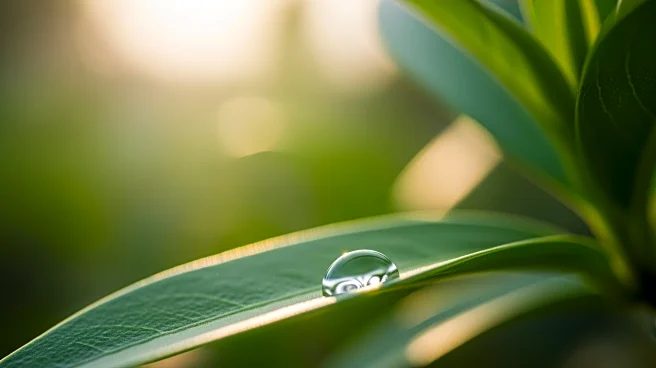What's Happening?
Morocco has signed a $420.1 million loan agreement with Japan to finance a significant hydro-agricultural development project in the Gharb region. This initiative aims to improve water-use efficiency and boost sustainable agricultural production across
30,000 hectares. The project includes building main hydro-agricultural canals, upgrading infrastructure, and reinforcing existing irrigation networks. The agreement aligns with Morocco's national strategies, such as the Generation Green 2020-2030 plan and the National Program for Drinking Water Supply and Irrigation 2020-2027. The country faces increasing pressure on its water resources due to declining rainfall and climate impacts, which threaten food security and rural communities.
Why It's Important?
This deal is crucial for Morocco as it addresses the pressing issue of water scarcity, which is exacerbated by climate change and declining rainfall. By improving irrigation and water management, the project aims to enhance food security and support rural communities that are vulnerable to water shortages. The World Bank has highlighted the need for substantial investment in water infrastructure to mitigate these challenges. The agreement with Japan represents a significant step towards building resilience against climate impacts and ensuring sustainable agricultural practices in Morocco.
What's Next?
The successful implementation of this project could serve as a model for other African nations facing similar water scarcity issues. It may also encourage further international cooperation and investment in water management and climate resilience projects across the continent. Monitoring the project's progress and its impact on local communities and agriculture will be essential to assess its effectiveness and potential for replication in other regions.
















